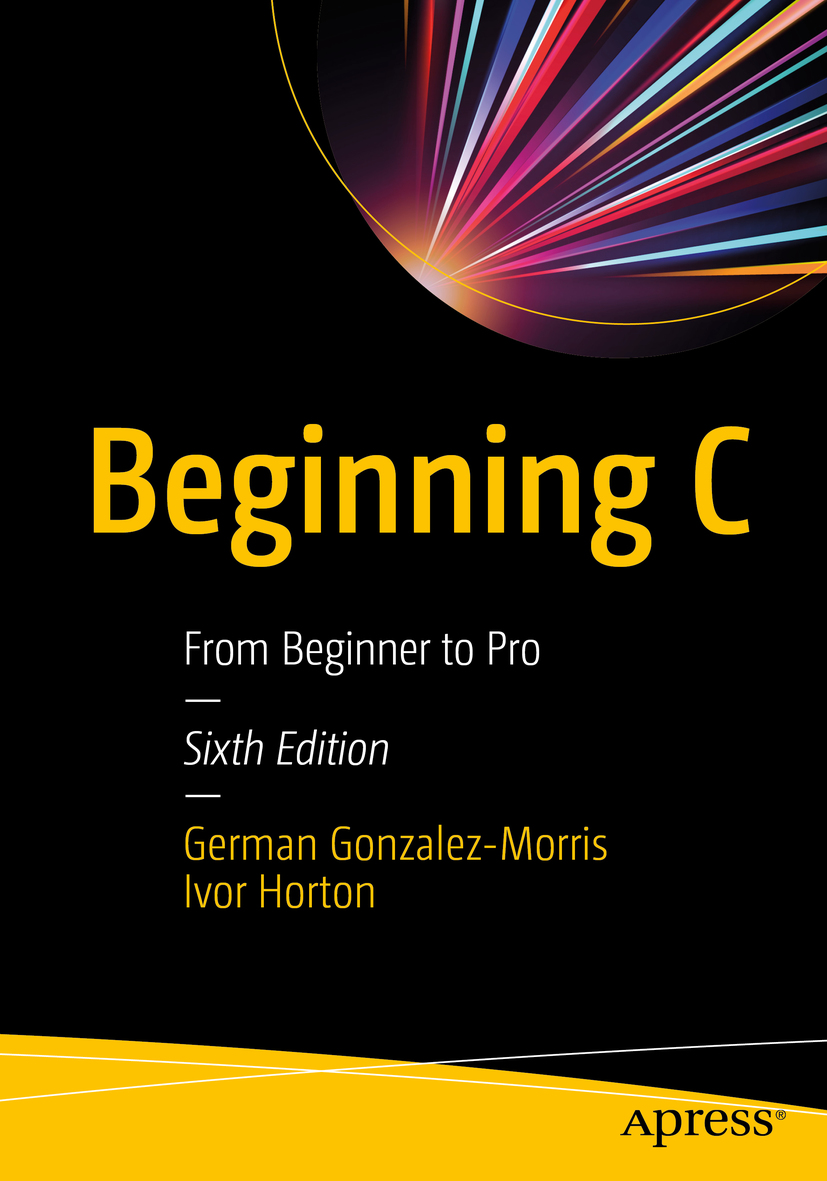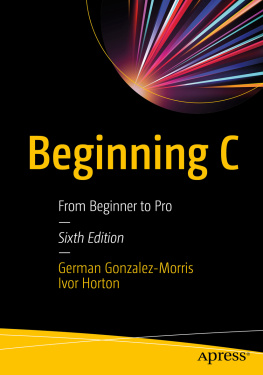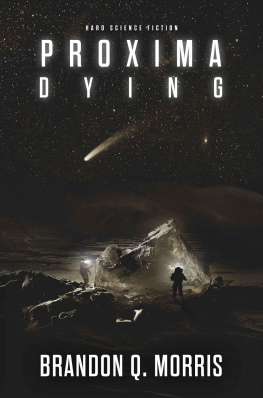German Gonzalez-Morris - Beginning C
Here you can read online German Gonzalez-Morris - Beginning C full text of the book (entire story) in english for free. Download pdf and epub, get meaning, cover and reviews about this ebook. publisher: Apress, genre: Computer. Description of the work, (preface) as well as reviews are available. Best literature library LitArk.com created for fans of good reading and offers a wide selection of genres:
Romance novel
Science fiction
Adventure
Detective
Science
History
Home and family
Prose
Art
Politics
Computer
Non-fiction
Religion
Business
Children
Humor
Choose a favorite category and find really read worthwhile books. Enjoy immersion in the world of imagination, feel the emotions of the characters or learn something new for yourself, make an fascinating discovery.
- Book:Beginning C
- Author:
- Publisher:Apress
- Genre:
- Rating:3 / 5
- Favourites:Add to favourites
- Your mark:
- 60
- 1
- 2
- 3
- 4
- 5
Beginning C: summary, description and annotation
We offer to read an annotation, description, summary or preface (depends on what the author of the book "Beginning C" wrote himself). If you haven't found the necessary information about the book — write in the comments, we will try to find it.
Beginning C — read online for free the complete book (whole text) full work
Below is the text of the book, divided by pages. System saving the place of the last page read, allows you to conveniently read the book "Beginning C" online for free, without having to search again every time where you left off. Put a bookmark, and you can go to the page where you finished reading at any time.
Font size:
Interval:
Bookmark:


Any source code or other supplementary material referenced by the author in this book is available to readers on GitHub via the books product page, located at www.apress.com/9781484259757 . For more detailed information, please visit http://www.apress.com/source-code .
To my parents, Germn and Felicia
German Gonzalez-Morris
For my daughter, Dany
Ivor Horton
Welcome to Beginning C: From Beginner to Pro, Sixth Edition. With this book, you can become a competent C programmer using the latest version of the C language. In many ways, C is an ideal language with which to learn programming. Its very compact, so there isnt a lot of syntax to learn before you can write real applications. In spite of its conciseness, its extremely powerful and is used by professionals in many different areas. The power of C is such that it can be applied at all levels, from developing device drivers and operating system components to creating large-scale applications. A relatively new area for C is in application development for mobile phones.
C compilers are available for virtually every kind of computer, so when youve learned C, youll be equipped to program in just about any context. Once you know C, you have an excellent base from which you can build an understanding of the object-oriented C++.
My objective in this book is to minimize what I think are the three main hurdles the aspiring programmer must face: coming to grips with the jargon that pervades every programming language, understanding how to use the language elements (as opposed to merely knowing what they are), and appreciating how the language is applied in a practical context.
Jargon is an invaluable and virtually indispensable means of communication for the expert professional as well as the competent amateur, so it cant be avoided. My approach is to ensure that you understand the jargon and get comfortable using it in context. In this way, youll be able to more effectively use the documentation that comes along with the typical programming product and also feel comfortable reading and learning from the literature that surrounds most programming languages.
Comprehending the syntax and effects of the language elements is obviously an essential part of learning C, but appreciating how the language features work and how they are used is equally important. Rather than just using code fragments, I provide you with practical working examples in each chapter that show how the language features can be applied to specific problems. These examples provide a basis for you to experiment and see the effects of changing the code.
Your understanding of programming in context needs to go beyond the mechanics of applying individual language elements. To help you gain this understanding, I conclude most chapters with a more complex program that applies what youve learned in the chapter. These programs will help you gain the competence and confidence to develop your own applications and provide you with insight into how you can apply language elements in combination and on a larger scale. Most important, theyll give you an idea of whats involved in designing real programs and managing real code.
Its important to realize a few things that are true for learning any programming language. First, there is quite a lot to learn, but this means youll gain a greater sense of satisfaction when youve mastered it. Second, its great fun, so you really will enjoy it. Third, you can only learn programming by doing it, and this book helps you along the way. Finally, its certain you will make a lot of mistakes and get frustrated from time to time during the learning process. When you think you are completely stuck, you just need to be persistent. You will eventually experience that eureka moment and realize it wasnt as difficult as you thought.
Because I believe in the hands-on approach, youll write your first programs almost immediately. Every chapter has several complete programs that put theory into practice, and these are key to the book. You should type in and run all the examples that appear in the text because the very act of typing them in is a tremendous memory aid. You should also attempt all the exercises that appear at the end of each chapter. When you get a program to work for the first timeparticularly when youre trying to solve your own problemsyoull find that the great sense of accomplishment and progress makes it all worthwhile.
The pace is gentle at the start, but youll gain momentum as you get further into the subject. Each chapter covers quite a lot of ground, so take your time and make sure you understand everything before moving on. Experimenting with the code and trying out your own ideas are important parts of the learning process. Try modifying the programs and see what else you can make them dothats when it gets really interesting. And dont be afraid to try things outif you dont understand how something works, just type in a few variations and see what happens. It doesnt matter if its wrong. Youll find you often learn a lot from getting it wrong. A good approach is to read each chapter through, get an idea of its scope, and then go back and work through all the examples.
You might find some of the end-of-chapter programs quite difficult. Dont worry if its not all completely clear on the first try. There are bound to be bits that you find hard to understand at first because they often apply what youve learned to rather complicated problems. If you really get stuck, you can skip the end-of-chapter exercises, move on to the next chapter, and come back to them later. You can even go through the entire book without worrying about them. However, if you can complete the exercises, it shows you are making real progress.
Font size:
Interval:
Bookmark:
Similar books «Beginning C»
Look at similar books to Beginning C. We have selected literature similar in name and meaning in the hope of providing readers with more options to find new, interesting, not yet read works.
Discussion, reviews of the book Beginning C and just readers' own opinions. Leave your comments, write what you think about the work, its meaning or the main characters. Specify what exactly you liked and what you didn't like, and why you think so.













